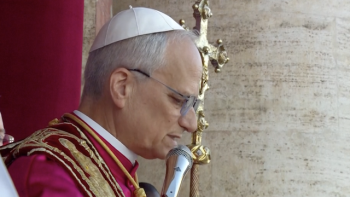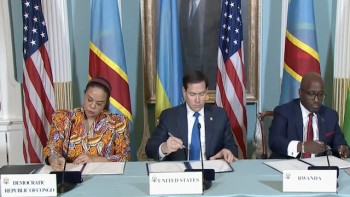Rustin Bayard, a key advisor to Dr. Martin Luther King, Jr., was the organizer of the 1963 March on Washington for Jobs and Freedom. Rustin Bayard is not as well known as other civil rights leaders. Yet, he is perhaps one of the major figures who became instrumental in the success of the Civil Rights movement. The reasons behind his less prominent visibility have nothing to do with his role. In large part because he was Black and gay and his brief flirtation, during his twenties, with Communism, he was forced to remain in the background.
Despite that, he played his role and remained a trusted advisor of Dr King and an effective leader. Rustin Bayard was a brilliant thinker and strategist a radical pacifist, with an incredible charm to win converts to
the causes of peace and civil rights. He was a talented singer, a remarkable tenor who wooed his audiences and the masses with gospel and blues songs.
From the 1940s through the 1960s, Rustin led from behind by using his considerable talents as an organizer, strategist, speaker and writer to challenge the economic and racial status quo and catalyze the civil-rights movement with courageous acts of resistance. He rallied labor, pacifist, and civil rights activists and organizations to the cause. By the time of his death, he had undertaken the issues that are actual today, including business of economic justice, equal employment, voting rights, and equal opportunity for minorities. These are the issues mostly dominating the 2016 US presidential elections, especially those championed by Bernie Sanders.
Rustin was born in West Chester, Pennsylvania in 1912, to Florence Rustin and Archie Hopkins, to a life of privilege. The youngest of nine children, Rustin was raised by his grandparents. Both grandparents were local caterers who raised Rustin in a large mansion. Although he attended his grandfather’s African Methodist Episcopal church, Rustin was strongly influenced by the Quaker faith of his grandmother, Julia Rustin, who was an early member of the NAACP. Some NAACP leaders, including W. E. B. DuBois, stayed with the Rustins when they were on speaking tours.
Rustin was a gifted student, an outstanding athlete, a skilled orator and poet, and an exceptional tenor. Early in his life he revealed a strong social conscience. In high school he was arrested for refusing to sit in the West Chester movie theater’s segregated balcony, nicknamed “Nigger Heaven.”
In 1932, Rustin enrolled in Wilberforce University, a historically black college (HBCU) in Ohio operated by the AME Church. As a student at Wilberforce, Rustin was active in a number of campus organizations, including the Omega Psi Phi Fraternity. He was expelled from Wilberforce in 1936 after organizing a strike. Rustin then attended Cheyney State before moving to New York City in 1937. He enrolled briefly at the City College of New York, where he got involved with the campus Young Communist League, attracted by their antiracist efforts — including their fight against segregation in the military — but he broke with the Communist Party after a few years.
Rustin approach to activism was inspired by combining Quaker pacifism with socialism and the theory of non-violent protest, popularized by Mahatma Gandhi. He wrote: "The principal factors which influenced my life are 1) nonviolent tactics; 2) constitutional means; 3) democratic procedures; 4) respect for human personality; 5) a belief that all people are one."
He also was a Gay Rights activist.
Rustin Bayard died on August 24, 2987. Upon his death, US President Ronald Reagan issued a statement praising his work for civil rights and "for human rights throughout the world." and for never giving up "his conviction that minorities in America could and would succeed based on their individual merit."
On August 8, 2013, President Barack Obama announced that he would posthumously award Rustin the Presidential Medal of Freedom, the highest award in the United States and issued a statement saying that:
Bayard Rustin was an unyielding activist for civil rights, dignity, and equality for all. An advisor to the Reverend Dr. Martin Luther King, Jr., he promoted nonviolent resistance, participated in one of the first Freedom Rides, organized the 1963 March on Washington for Jobs and Freedom, and fought tirelessly for marginalized communities at home and abroad. As an openly gay African American, Mr. Rustin stood at the intersection of several of the fights for equal rights.
At the White House ceremony on November 20, 2013, President Obama presented Rustin's award to Walter Naegle, his surviving partner of ten years at the time of Rustin's death.

















